Publications
FACULTIES
SCIENCE AND LETTERS

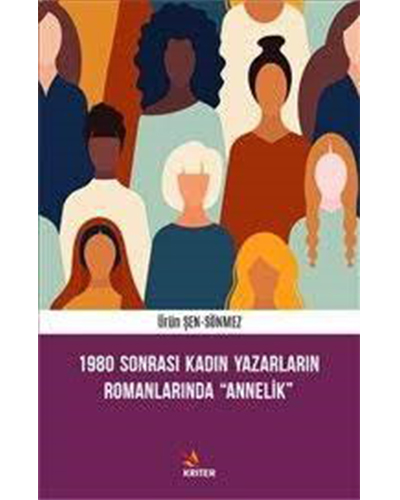
1980 Sonrası Kadın Yazarların Romanlarında “Annelik”, (Ürün ŞEN SÖNMEZ) Literature, as one of the important areas in which motherhood is reflected, reflects both the definitions of acceptable motherhood and the general acceptance of motherhood of the period in which it is shaped and also affects the reproduction or transformation of these. When motherhood is accepted as a problem, the focused works should not be those who accept and reproduce the current concept of motherhood, but those who examine this concept from different perspectives. As in the whole world, it has been possible to discuss the concept of motherhood in Turkey in a cultural context with the rise of the women’s movement and the enrichment of women’s literature. It is possible to find narrative reflections of the concept of motherhood as a human/imperfect, specific identity experienced, not an idealized, sanctified, uniformized identity in the productions of female writers. Especially after 1980, with the influence of the political and social atmosphere, it was possible to place the individual at the center of the literary text and to increase the voices and visibility of women in the literary public. In this study, novels published in 1980 and later were examined in order to reach more in-depth findings.
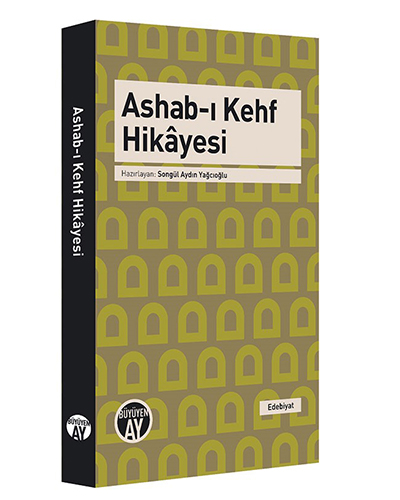
Ashab-ı Kehf Hikâyesi (Songül Aydın Yağcıoğlu): The Story of Ashab-ı Kehf, which is one of the stories about which most works are written in our civilization world, is among the 9th and 26th verses of the Surah of Kehf. This work is one of the Ashab-ı Kehf whose author is not known. The story offers depths that gain expansions in opposites by addressing a multilayered reading.

Bâkî’nin Kendi Şiiri ve Şairliğine Dair Görüşleri: Chapter Author Songül Aydın Yağcıoğlu

Bir Yalnız / 100. Doğum Yılında İlhan Berk (Prep. by Bahanur Garan and Murat Yalçın): It is a book of the papers presented in the exhibition “Poetry is Everywhere: İlhan Berk is 100 Years Old” at Yapı Kredi Kültür for the 100th anniversary of İlhan Berk’s birth and in the “Dictionary of a Lonely Sky: Ilhan Berk Symposium on the 100th Anniversary of his Birth” held at Istanbul Arel University on 20 December 2018.

Define (Mehmet Rauf): Translated to Modern Turkish by Ürün ŞEN SÖNMEZ
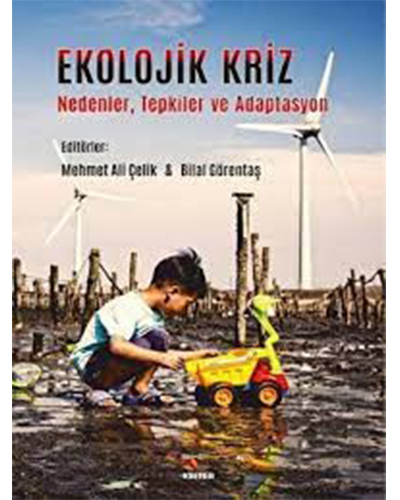
Ekolojik Kriz Nedenler, Tepkiler ve Adaptasyon: Chapter Author Ürün Şen Sönmez

Feminizm: Chapter Author Ürün Şen Sönmez

Geç Osmanlı Dönemi Romanlarında Şair ve Şiir (Bahanur Garan Gökşen): In this research book, the subject of poems and poems in novels is given depth by focusing on the last period of the Ottoman Empire, but especially from Tanzimat to the Republic.

…

Kadınlar Hep Vardı: Chapter Author Ürün Şen Sönmez

Kan Damlası (Mehmet Rauf): Translated to Modern Turkish by Ürün Şen Sönmez

İlhan Tarus / Kasabanın Ruhu (Prep. by Bahanur Garan Gökşen): İlhan Tarus’ novel Kasabanın Ruhu, which was published in the Yeni Sabah newspaper for 79 days between December 9, 1956 and February 25, 1957, was compiled from the newspaper and presented to the reader as a book for the first time.

Kırgız Destanlarında Halk Hukuku (Harun AKÇAM) Epics contain many codes belonging to the cultures they belong to. Many elements such as the linguistic codes, social, cultural and economic structures, lifestyles, legal structures, etc. of the cultures related to the works to be done regarding the epics can be clarified. Therefore, the study and evaluation of epics related to folk literature and folk culture are important studies. Because epics are a corpus that includes not only the narration of an event, but also many elements embedded in the sub-text. Due to this feature, the epics of the Kyrgyz Turks, who have an important place in the Turkish epic tradition, were examined and the social and legal structure and public law practices, which are the main subject of this study, were evaluated.

Memoratların Yeni İcra Bağlamı Olarak Korku Filmleri: “Siccin” Filmi Örneği (Department Author Harun AKÇAM): Memorat, which is one of the prose narrative genres of folk literature, has a wide distribution area within the oral narrative tradition. This genre, which has entered the literature of folk literature studies as a newer genre compared to genres such as myth, fairy tale and legend, has been evaluated by researchers by associating it with myth. Oral narrative types, which have a wide range of dissemination and use, have also been covered in various fictional works. Cinema films based on folklore narratives also constitute one of this diversity. Especially the use of the sentence “it is an excerpt from a real story” by horror cinema can be associated with memorat, one of the prose narrative types. In this study, the approach of Siccin, one of the Turkish horror films after 2000, to the genie phenomenon and the type of memorate were associated with the filming of the memorates about the genies.

Muallim / Nüsha-i Mahsusa Tevfik Fikret Özel Sayısı (Prep. by Bahanur Garan): In the special issue of the master journal, which is prepared to commemorate the second year of Tevfik Fikret’s death, important poets and writers from the poet’s immediate circle take the floor and examine his character, teaching, poetry, and world of ideas. In this book, the articles in the said journal were translated into Latin letters for the first time and enriched with footnotes.

Nâbizade Nâzım / Hanım Kızlara ve Mini Mini Mektepli (Prep. by Bahanur Garan and Erol Gökşen): These two works of Nâbizade Nâzım on children’s literature were translated into Latin letters for the first time.

Hamzavî’nin İskendernâme’si Hakkında Bazı Tespitler: Chapter Author Songül Aydın Yağcıoğlu

Türk Romanında Kötülük (Ürün ŞEN SÖNMEZ): The concept of evil and the problem of evil have deeply affected art and literature as the richest production of man. Although the existence of evil both inside and outside of man deepens the concept, the identity of the exposed, willed and practicing party has made evil a problem at the same time; the issue has been discussed, expanded and developed since ancient times with all its dimensions, philosophical, religious, sociological, psychological, political, historical and artistic.
Despite the studies on the question of the existence of evil in Turkish literature, the fact that a comprehensive and individual study has not been conducted makes it necessary to conduct a study in the context of evil and literature. The main purpose of this study is to contribute to the elimination of this need. The choice of novel as a field of study is due to the fact that the concept of evil has been shaped by many disciplines and the novel has established closer relations with these disciplines than other literary genres in many respects. Since there was no previous study on evil in the Turkish novel, the novels subject to this study were selected from the beginning of the novel in Turkish literature; in order to present a holistic perception, novels up to 1950 were included in this selection. The fact that the novel presents period reflections from social and political perspectives will contribute to revealing how the concept of evil, which is associated with morality at the point of determining its qualities, is defined not only in the fictional work but also in the Turkish world of thought and social perception.

Selçuk Baran / Türkân Hanım’ın Ölümü (Prep. by Bahanur Garan Gökşen): Selçuk Baran’s play, which was staged by the Ankara State Theater in the 1990-91 season under the name of “Türkan Hanım” and forgotten in the Ankara State Theaters Dramuturgi Archive, was published for the first time. In this book, the play is included with the story that the author gave the same name but wrote with a different fiction.

Cemal Süreya / Yabancı Yayınlar (Prep. by Bahanur Garan and Erol Gökşen): Cemal Süreya’s selection of important literary-art magazines published in France from March 1968 to October 1975 is published in the Turkish Language magazine under the title of “Yabancı Yayınlar”. These articles were compiled from the said journal for the first time and enriched with footnotes.

Yeraltı Kliniği: Chapter Author Ürün Şen Sönmez
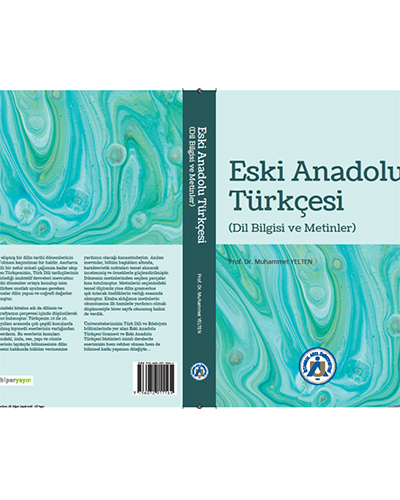
Eski Anadolu Türkçesi – Dil Bilgisi ve Metinler (Muhammet Yelten): It is inevitable that an advanced language has historical periods. Our Turkish, which has flowed like a strong river for centuries, has various circuits determined by Turkish Language historians.
When revealing historical periods and naming them, the absolute issues to be followed were the structure of the language and geographical values.
The name of the book in your hand is also embodied by thinking within the framework of our language and geography. We are aware of the existence of valuable works of Turkish written on a wide range of subjects between the 13th and 15th centuries. Apart from the subjects of these works; I believe that knowing the spelling, sound, structure and sentence types properly will help us to judge about the period of the language. The aforementioned issues were examined under the headings of the sections based on their characteristic points and strengthened with examples. Pieces selected from the texts of the period were kept short. Our main criterion in the selection of texts has been the existence of features that will shed light on the grammar of the language. We also gave the book a page-by-page version in order to help us read the texts we received in the first move.
In the courses named Old Anatolian Turkish Grammar and Old Anatolian Turkish Texts in the Turkish Language and Literature departments of our universities, we hope that our work will be both a guide and a scientific contribution…

Osmanlı Türkçesi – Arapça-Farsça Unsurlar, Metinler (Muhammet Yelten and Mustafa Uluçay): Among the alphabets used by the Turks throughout history, the Arabic alphabet is the longest-lasting. Today, millions of books and documents about literature, science, theology, law and positive sciences written in this language and alphabet, which we call Ottoman Turkish, are waiting to be read and understood in the well-established libraries in Turkey and different countries of the world. The most important feature of this book titled “Osmanlı Türkçesi: Arapça-Farsça Unsurlar, Metinler” is that the Arabic-letter texts in the book were rewritten with a computer technique, legible and beautiful font, and grammatical subjects were handled with a didactic method and made comprehensible with abundant examples.
The work is a guide and textbook for everyone who wants to have in-depth knowledge in all branches of social sciences, especially students of the Department of History, Turkish Language and Literature, and to penetrate the works created in the past.

Osmanlı Türkçesi – Dil Bilgisi, Hüsn-i Hat, Metinler (Muhammet Yelten and Mustafa Uluçay): To determine and follow the historical periods of a language with texts. The first written texts of the Turkish language, which has a very old historical past, and those that were incarnated in later periods were written in different alphabets. The texts of our written language, which has been formed under the name of Western Turkish since the 13th century, were represented with the Arabic alphabet until the first quarter of the 20th century. The verses and prose texts created with the Arabic alphabet, which has reached about ten centuries, are referred to depending on the characteristics of the periods in which they were written. Ottoman Turkish, which was an important period of Western Turkish, ruled between the XVI and XIX centuries. Our book titled Ottoman Turkish contains the language structure and some important texts of this period. In addition, the section with calligraphy and examples constitutes the different face of our book. The grammar in the work is written with the aim of making you taste the pleasure of learning by loving the subjects. For this reason, making learning efficient with practices has been the most basic philosophy of our work. In the selection of texts, the combination of original subject, vivid theme and rich style was taken into consideration. The completion of the subject of each text taken into the book has been meticulously observed. Thus, it was helped to read any part with interest to the end. In addition, it was aimed to obtain a taste of literature with these selected texts.
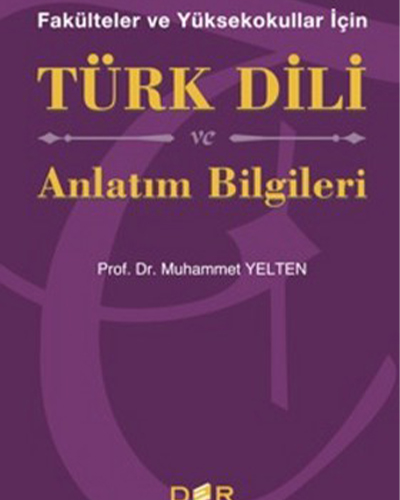
Fakülte ve Yüksekokullar İçin Türk Dili ve Anlatım Bilgileri (Muhammet Yelten): Language is an advanced system whose basic material is shaped sound, operated with a highly complex but at the same time a consistent set of rules. In a language that shows integrity as a system; voice, word and sentence are the main areas that express the structure; meaning is the main areas that express the function.
In order to speak well with a language and write correctly, it is necessary to know the principles of that language well. Turkish, one of the oldest languages of the world, has various rules like every language. These rules, which are seen in the fields of voice, word and sentence, constitute the indispensable principles of Turkish. The correct and beautiful use of Turkish depends first of all on knowing these rules exactly. In addition, it is necessary to know the basic characteristics, forms of expression and types of expression that the expression carries verbally or in writing.
The book titled Turkish Language and Expression Information was prepared based on the framework program determined by YÖK for Turkish Language I and Turkish Language II courses taught at universities. After presenting information on Turkish grammar subjects, the use of these rules in different contexts and the types of expression were tried to be presented with original examples.
In fact, “Reading Culture” constitutes the most colorful and wide range of the book. It was prepared to create a reading adventure by activating the idea of reading in the person.



